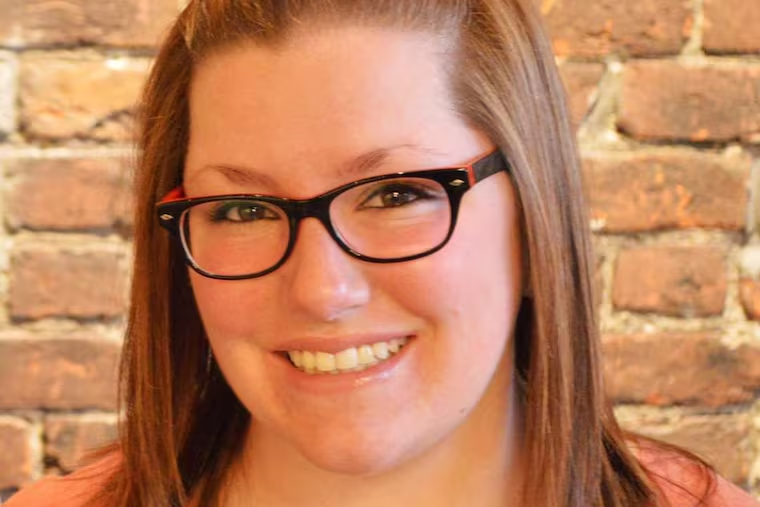New Jersey woman hospitalized for coronavirus has been released and is improving
Corianne Goldstein still has shortness of breath and is tired, but she's glad to be back in her home in Matawan, recovering with her husband and two dogs.

Most people do recover from the coronavirus — more than 127,000 worldwide, according to Johns Hopkins University, which keeps track of the virus and its spread.
Corianne Goldstein, a 32-year-old New Jersey woman who was hospitalized after contracting the virus, is on her way to joining them.
Goldstein, of Matawan, was released from Bayshore Medical Center in Holmdel earlier this week and is at home continuing to recover.
“It’s nice to be back with my husband and my dogs, just really glad to have somebody who can be next to me for the rest of this journey,” said Goldstein, a Rowan University graduate and marketing professional who let The Inquirer chronicle her experience with the virus earlier this month because she said she wanted younger people to recognize they could get it.
» READ MORE: These two women in their 30s have the coronavirus and want you to understand that younger people are getting it, too
About two weeks ago, Goldstein broke out in chills and fever, then started coughing and having difficulty breathing. She went to the emergency room on March 17, was diagnosed with double pneumonia, and tested positive for the virus. At one point, she was unable to talk, and communicated from her hospital room by text.
But in time, her symptoms started to ease. She was discharged Wednesday, just as the hospital became more crowded, she said.
“Part of the thing that makes coronavirus, to me at least, so problematic is that you’re alone for all of it,” she said. “You literally get whisked away from your family. You can talk to them, but you can’t see them. If anything went wrong … I would have been alone.”
She’s still tired and short of breath, she said, and doctors told her it could take from four to six weeks for her to fully recover. She said she was treated with Plaquenil, a drug used in the treatment of malaria and chronic rheumatoid arthritis, and antibiotics. There is no cure for the virus.
Her doctor, she said, told her she had some damage to her lungs that will have to be addressed later.
“The virus might be gone, but the results of what it did to me are not,” she said.
Also recovering is Elena Blanc, 31, a graduate of the Philadelphia High School for Creative and Performing Arts, who lives in Brooklyn, N.Y., and also shared the story of her own sickness with The Inquirer. Her primary care doctor told her the illness was likely COVID-19, but because of test shortages and the fact that she doesn’t have underlying conditions that would make her more susceptible to bad outcomes, she would not be tested unless her symptoms worsened. She was not hospitalized.
"My fever finally went away, and my breathing and cough are much better,” Blanc, a full-time graduate student in the economics department at the New School for Social Research, said by email.